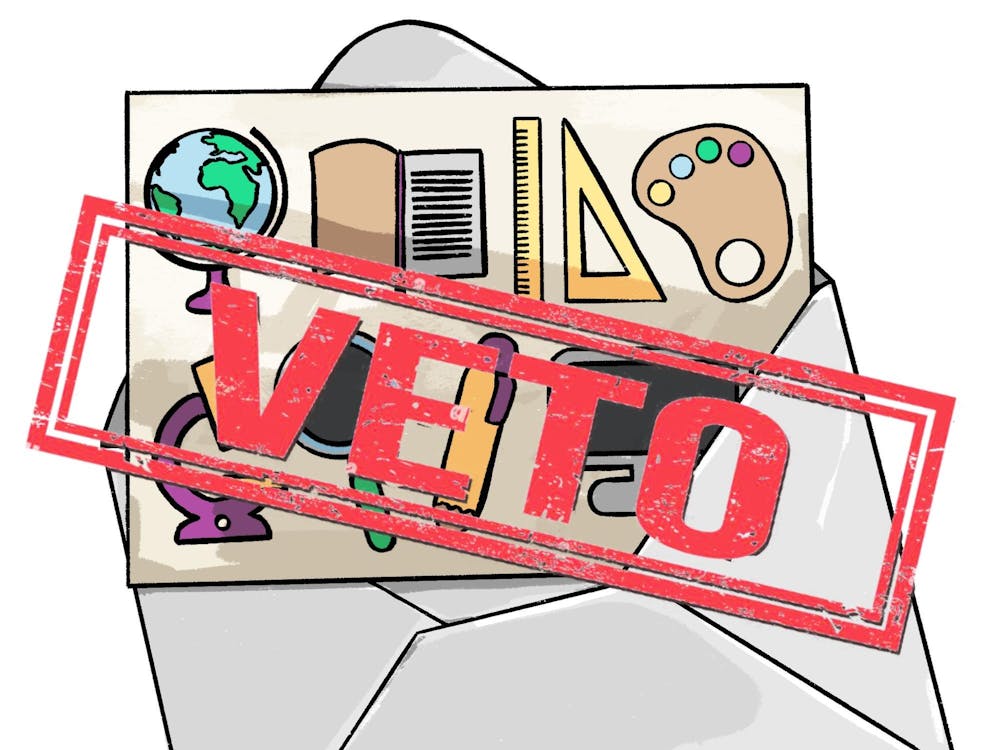Writing for the GreenHawks section of this paper over the past year has been one of my greatest points of pride and joy. Working with GreenHawks editor, Sam Norton, I have been able to use my platform for good – raising awareness about environmental injustice and promoting sustainable change.
Although many people may struggle to connect finance — often viewed as a capitalist and materialistic field — with sustainability, the two may be more closely related than you think.
Last fall I began my first year as a journalism major and joined the GreenHawks section of the newspaper early on. Despite my limited science background, I knew I cared about the environment from a young age.
Growing up, I took yearly trips to Colorado to visit my dad’s side of the family. Every time I visited, I was immersed in stunning nature that captivated my young mind. In the mountains, I fell in love with the outdoors and its many activities, such as hiking and mountain biking.
But as I grew older, I saw the place I loved gradually being destroyed by wildfires and climate catastrophes.
According to the Colorado State Forest Service, the state’s 10 largest wildfires have all occurred since 2002. Climate projections suggest the problem will worsen, with temperatures predicted to increase by 2.5 degrees Fahrenheit to 6.5 degrees Fahrenheit by 2050.
Writing for GreenHawks over the past year has allowed me to spread awareness about climate change and educate myself on protecting the planet I love. It has also shown me firsthand how future shifts toward sustainability and clean energy depend on today's business decisions.
Several of my articles highlight this connection: A helium reclamation system in the chemistry lab that saves the university hundreds of thousands of dollars, an eco-artist using her ties to Wall Street to raise awareness of coral bleaching and the city of Oxford educating its residents on tax incentives offered in the 2022 Inflation Reduction Act.
For a green future, we need people willing to invest in sustainability and entrepreneurs who can create innovative solutions to today's climate problems. This is what I call the economics of sustainability.
While some people may complain about upfront costs or “green premiums” associated with the transition to clean energy, it can actually save them money in the long run and save our planet. And this doesn’t even account for the financial damage caused by continued reliance on fossil fuels.
According to the World Economic Forum, climate change is estimated to cost the world between $1.7 trillion and $3.1 trillion annually by 2050. If we continue down our current trajectory, it will spell catastrophe for humanity.
Investing in clean energy makes sense financially. Even in areas where it might not initially seem profitable, it opens up opportunities for business leaders to innovate and capitalize on the growing market for renewable energy.
Enjoy what you're reading?
Signup for our newsletter
This is one of the reasons why I switched my major to finance: I want to make a difference.
As a Miami University student, you can make a difference too. Events such as Social Innovation Weekend allow Miami business majors to make a difference firsthand by addressing the climate crisis and offering innovative solutions to 21st-century problems.
As climate change continues to affect our planet, business students and leaders alike should take this opportunity to make a difference and create innovative solutions for a better world.
Austin Smith is a sophomore majoring in finance and double minoring in journalism and Chinese language. He has been writing for The Student since his first year and is currently a Campus & Community assistant editor. Austin hopes that writing for The Student can help broaden his perspective and make him a more well-rounded individual.




